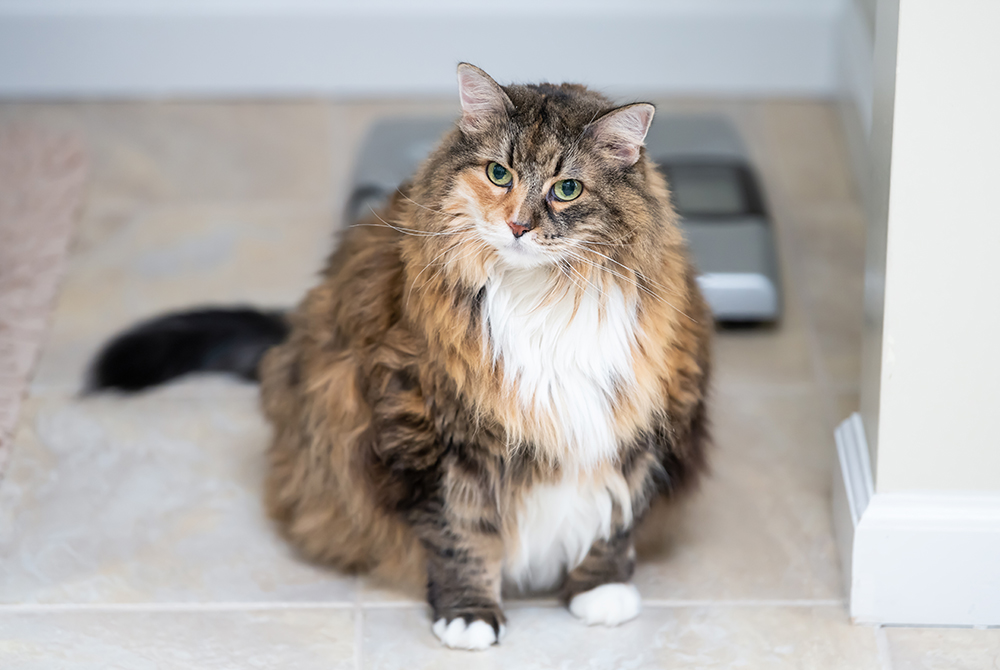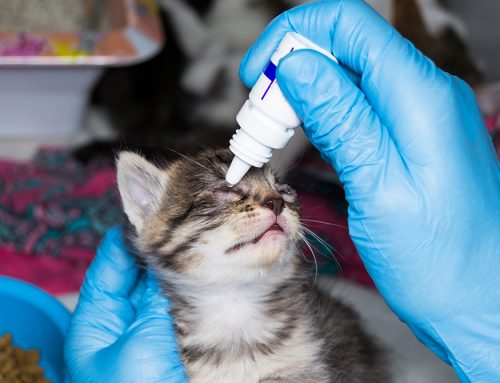Mission Veterinary Clinic
16915 San Fernando Mission Blvd, Granada Hills, CA 91344
Phone: 818-363-8143
missionvet.com
Urgent Care | Walk-Ins Only | No Appointments
What is Obesity in Pets?
Obesity in pets, just like in humans, refers to an excessive accumulation of body fat. It is a common condition that can significantly impact your pet’s overall health and well-being. Obesity can lead to a range of health issues, including diabetes, heart disease, joint problems, and decreased life expectancy.
Causes of Obesity in Pets
Several factors can contribute to obesity in pets, including:
- Overfeeding: Feeding pets too much food or giving too many treats can lead to weight gain.
- Lack of Exercise: Pets that do not get enough physical activity are more likely to become overweight.
- Breed Predisposition: Certain breeds are more prone to obesity, such as Labrador Retrievers, Beagles, and Dachshunds.
- Age: Older pets are more likely to gain weight due to decreased activity levels and metabolic changes.
- Medical Conditions: Hypothyroidism and other medical conditions can contribute to weight gain in pets.
Signs of Obesity in Pets
It’s important to recognize the signs of obesity in your pet:
- Visible Weight Gain: A noticeable increase in weight, with fat deposits around the chest, abdomen, and hips.
- Difficulty Breathing: Overweight pets may struggle to breathe, especially after exercise.
- Decreased Mobility: Pets may be less willing to move or play due to joint pain and discomfort.
- Fatigue: Obese pets often tire more easily and may seem lethargic.
- Inability to Feel Ribs: When you gently press on your pet’s sides, you should be able to feel their ribs. If you cannot, your pet may be overweight.
Health Risks Associated with Obesity
Obesity can lead to a variety of health problems in pets, including:
- Diabetes Mellitus: Excess body fat can lead to insulin resistance, increasing the risk of diabetes.
- Joint Problems: Extra weight puts additional strain on joints, leading to arthritis and other musculoskeletal issues.
- Heart Disease: Obesity can contribute to high blood pressure and heart disease in pets.
- Respiratory Issues: Excess fat can restrict the chest cavity, making it harder for pets to breathe.
- Decreased Lifespan: Obese pets have a shorter life expectancy compared to those with a healthy weight.
Managing Your Pet’s Weight
If you suspect your pet is overweight, it’s important to take action:
- Consult with a Veterinarian: Schedule a visit to assess your pet’s weight and overall health. At Mission Veterinary Clinic, our team can provide personalized advice and a weight management plan tailored to your pet’s needs.
- Monitor Food Intake: Measure your pet’s food portions carefully and avoid overfeeding. Consider switching to a weight management formula if recommended by your veterinarian.
- Increase Exercise: Encourage regular physical activity. This can include walks, playtime, or other activities that suit your pet’s age and fitness level.
- Limit Treats: Treats should be given sparingly and should not make up more than 10% of your pet’s daily calorie intake.
- Regular Weigh-Ins: Monitor your pet’s weight regularly to ensure they are on track to reach a healthy weight.
Conclusion
Obesity in pets is a serious condition that can have long-term consequences on their health. By being proactive and working with your veterinarian, you can help your pet achieve and maintain a healthy weight, leading to a longer, happier life.
If you have concerns about your pet’s weight or need assistance with a weight management plan, please visit Mission Veterinary Clinic. We are located in the San Fernando Valley at 16915 San Fernando Mission Blvd, Granada Hills, CA 91344, and are here to help. Remember, we accept walk-ins only and do not take appointments.
For more information, visit missionvet.com or call us at 818-363-8143.










Leave A Comment